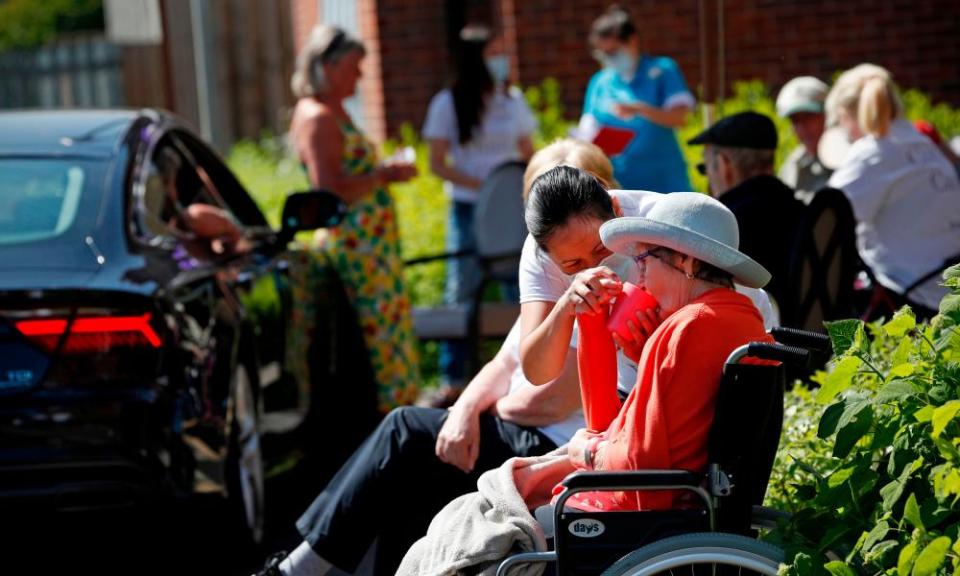Boris Johnson's blame-shifting shows the need for a coronavirus inquiry right now

When Boris Johnson gets caught, his first inclination is to wriggle.
He squirms and he splutters; if all else fails, he rumples his hair like a chastened little boy and mumbles regretfully at his shoes. When confronted with the story of his affair with Petronella Wyatt, he retreated behind claims about a “pyramid of piffle” rather than admit it was true.
When he hit a sticky patch with Brexit last autumn, he decided to prorogue parliament for five weeks rather than face the music. He once indignantly described Tony Blair, after the latter emerged broadly unscathed from a public inquiry into the alleged sexing-up of a dossier on Iraq, as a “mixture of Harry Houdini and a greased piglet. He is barely human in his elusiveness”, but could just as easily have been talking about himself. And it’s precisely this gift for slipping through critics’ hands that means Johnson urgently now needs to come before a public inquiry himself.
For, in the absence of one, history risks being rewritten before our disbelieving eyes. There is rightly growing outrage over the thousands who died of coronavirus in care homes, many of them after patients who hadn’t been tested for Covid-19 were decanted out of hospitals that were desperate to free up beds. Grieving families deserve answers.
Yet Johnson has sought first to shift the blame on to care homes and, when that didn’t wash, to suggest that what he really meant was: “We now know things about the way that coronavirus is passed from person to person without symptoms that we just didn’t know.” Really? The first stories of so-called asymptomatic transmission emerged from China in January; the government’s scientific advisory body Sage warned it couldn’t be ruled out in February; and Public Health England’s Professor Yvonne Doyle described it as a “crucial issue” to be resolved in March. The World Health Organization, which was saying in early April that it didn’t have proven reports of asymptomatic transmission, warned in the same breath that this didn’t mean it wasn’t happening.
In other words, ministers could, and should, have known at the very least that moving people from wards rife with Covid-19 into the very places most in need of sheltering from the virus, without testing them, was potentially dangerous. Yet untangling stories like this takes so long that the prime minister has generally galloped on to the next one by the time fact-checkers have caught up. If the truth is not to be lost in the weeds, we need a swift, independent and, crucially, public review of what went wrong during this first wave of the pandemic – and we need it before a second one hits.
All the signs are that No 10 has already embarked on its own, private postmortem of the last few months, yet the danger is that the most awkward findings will never make it out of the building. Downing Street is telling anyone who will listen that the crisis revealed a Whitehall machine unfit for purpose; so out goes the cabinet secretary, Mark Sedwill.
There are hints, too, of a diminished role in future for Sage, judged too slow to grasp at the outset that this wasn’t the flu pandemic for which it had long prepared. But a government marking its own homework like this leaves the rest of us no wiser as to whether ministers are drawing the right conclusions from what happened or merely the convenient ones.
A full judge-led inquiry – the kind that takes years, costs millions and inevitably paralyses governments – may well have to wait until after the pandemic is truly over. But the current lull in infections marks the best chance we have to take stock before the winter is upon us, and it’s not good enough to argue that an independent review would distract from the job of tackling the pandemic. If the government wanted to focus laser-like on the virus to the exclusion of anything else, it should have jumped at the chance last month to extend the Brexit transition period. Having refused to do so, it can hardly now turn around and claim it doesn’t have a minute to spare.
Since the lesson of public inquiries down the ages is that the truth is usually more complicated than people want it to be, an impartial investigation might well blow holes in some of the government’s feebler excuses while finding grains of truth in others. Sage clearly did flag up both the risk to care homes and the possible threat of asymptomatic transmission early on but, in hindsight, did it push the argument strongly enough?
The debt of gratitude owed to care workers in this crisis shouldn’t blind us, meanwhile, to the fact that one in five nursing homes and one in seven residential homes are judged to be requiring improvement or worse by the Care Quality Commission. It’s fair to ask how some homes that were floundering at the best of times coped with the unprecedented demands of a pandemic.
Yet the buck for all this still stops ultimately with the man who took the big strategic decisions, and now seems curiously reluctant to account for them. If this government has nothing to hide, then it should have nothing to fear from taking us inside its thinking. But if it isn’t willing to launch an inquiry itself, then parliament should seek to force its hand, and quickly. There will be lessons to learn from the first wave of this pandemic which could save lives in a second one. No decent government would seek to wriggle out of sharing them.
• Gaby Hinsliff is a Guardian columnist

